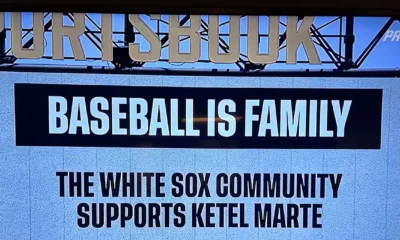banking
New Banking Rules Set to Squeeze Consumers and Community Banks Hard

For over 150 years, American consumers and businesses have benefited from a uniform regulatory framework established by the National Banking Act (NBA), signed into law by President Abraham Lincoln. This legislation has allowed for a cohesive banking system, replacing the complicated array of state laws that could threaten interstate commerce.
Currently, the Arizona House is deliberating on a bill, HB 2629, which has the potential to undermine the NBA and disrupt the national banking system. The proposed legislation aims to prevent banks and networks from imposing interchange fees on the sales tax portion of transactions. While supporters claim it protects consumers and aids small businesses, the complexities of its implementation suggest otherwise.
Implementing this bill overlooks the current payment systems, which do not segregate transactions into tax and non-tax portions. Businesses would need to establish new card-processing systems or adopt cumbersome accounting methods, incurring costs likely to be passed on to consumers.
Similar proposals have been introduced in various states but typically fail when lawmakers acknowledge the detrimental effects on small businesses and consumers. Notably, Illinois enacted the Interchange Fee Prohibition Act (IFPA), which is now facing legal challenges. A judge recently issued a preliminary injunction, indicating that national banks, responsible for nearly 90% of credit card transactions, may be protected under the NBA.
The repercussions of such legislation disproportionately affect small businesses and consumers, who are least equipped to handle additional regulatory burdens. Legal experts suggest the IFPA could even be overturned, and Illinois lawmakers are already moving to repeal the act before it is enacted.
If HB 2629 faces legal challenges, it could mirror the complications seen with the IFPA, imposing significant regulatory burdens on community and local banks. Such requirements may reduce the services these institutions can provide, further impacting consumers and contributing to unnecessary litigation expenses for taxpayers.
Arizona’s lawmakers should heed the lessons from Illinois and avoid setting this precarious precedent. If implemented, HB 2629 would essentially subject the state’s banking system to outdated regulations reminiscent of a time before the Civil War.
Moreover, the bill stipulates that if interchange fees cannot be eliminated at the point of sale, banks must provide credits later. Given the current limitations of payment networks, this would compel businesses to track and claim credits from financial institutions, a process unmanageable for many small enterprises.
It is imperative for the Arizona Legislature to recognize the consequences highlighted by the Illinois injunction. A fragmented regulatory landscape complicates operations for businesses and burdens taxpayers with overlapping regulations that conflict with federal law, ultimately prioritizing compliance over innovation and growth.
There is no justification for pursuing similar legislation in Arizona while litigation is ongoing in Illinois. The prospect of overregulating the economy threatens to stifle the free market system.
John Wittman is the executive director of Americans for Free Markets, a coalition advocating for free markets and economic development.


















